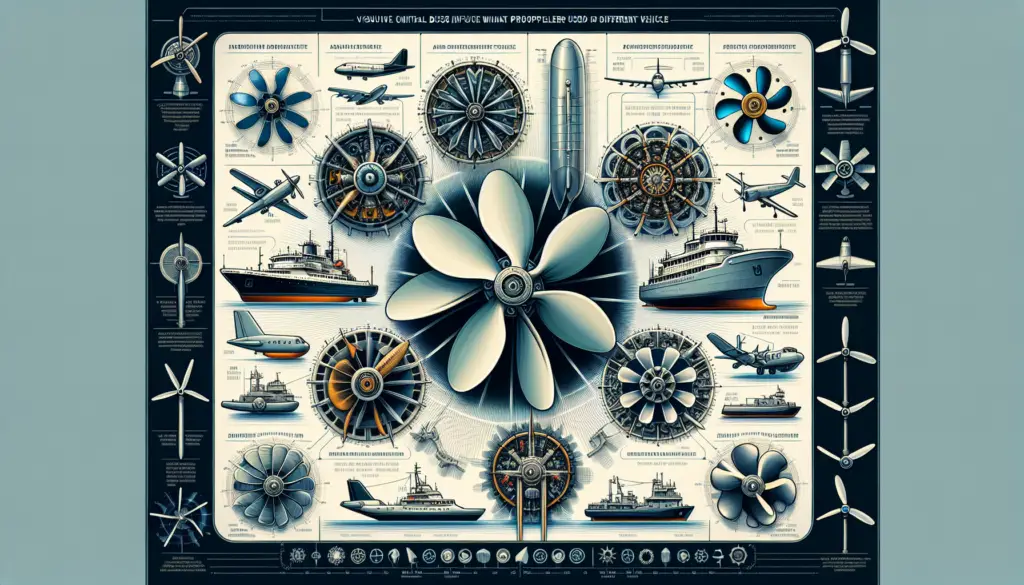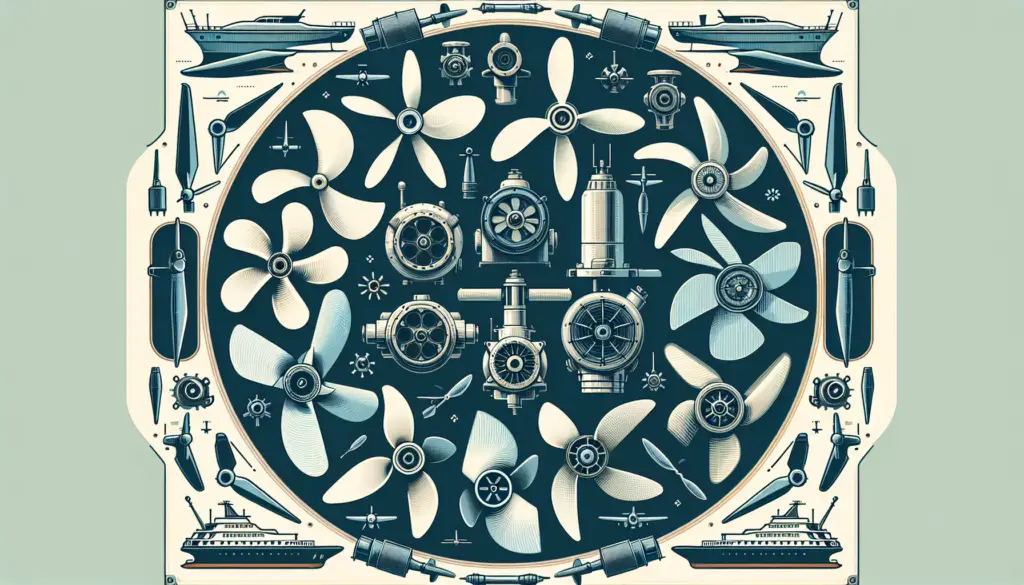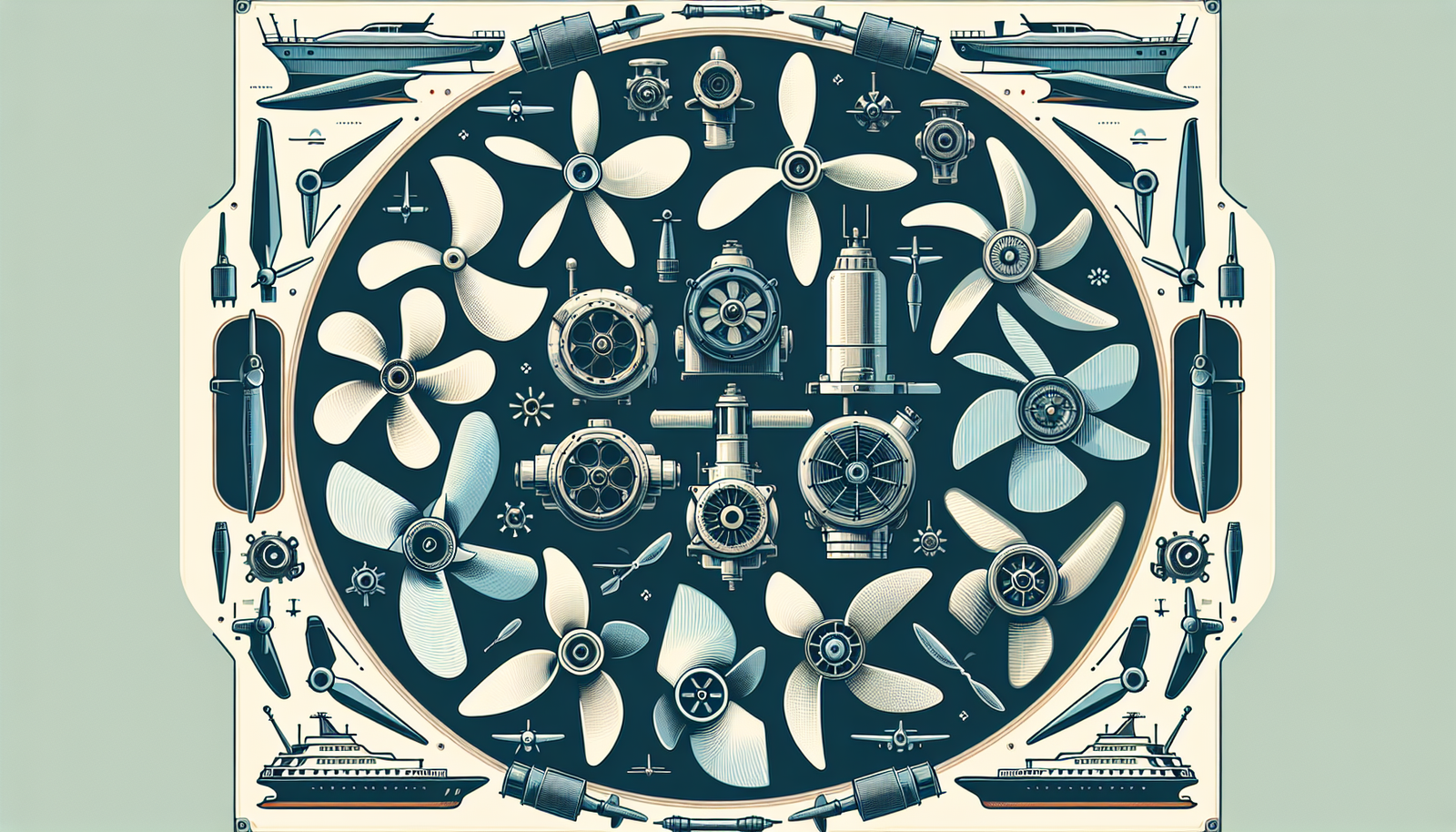You’re about to embark on an insightful journey exploring the nitty-gritty of propellers and fuel efficiency. With a world increasingly concerned about energy consumption, knowing how to choose the right propeller for your boat could have far-reaching implications, not just for your pocketbook but also for your carbon footprint. This knowledge could be the difference between a cost-effective, efficient sailing experience and one that leaves you wringing your hands at fuel pumps. “How To Choose The Right Propeller For Fuel Efficiency” arms you with the crucial knowledge needed to make informed choices and steer your course towards a more fuel-efficient future.

Understanding Propeller Basics
Let’s start with the basics. A propeller is an integral part of your boat. It’s the driving force that moves your vessel through the water, and it can directly influence the overall fuel efficiency. Understanding how it works can help you make the best choices for your boating needs.
The Role of the Propeller in Fuel Efficiency
You might be wondering how exactly a propeller contributes to fuel efficiency. It’s simple. A propeller that is well-suited for your boat and its specific engine will optimize the energy produced, leading to less fuel consumption. On the contrast, a poorly chosen propeller would mean your engine has to work harder and thereby, consume more fuel.
Different Types of Propellers
Propellers come in different types and materials. The common types include three-blade, four-blade, controllable pitch, and contra-rotating propellers. The choice depends on your boat, usage, and performance needs. Each type comes with unique benefits, and understanding their specific qualities will help you make an informed decision.
Basic Components of a Propeller
The key parts of a propeller include the hub, the blades, and the diameter. The hub is the part that attached to the boat’s drive shaft, while the blades are what cuts through the water. The diameter denotes the circle that the propeller blades would make when rotating.
Key Terms in Propeller Selection
When it comes to selecting a propeller, there are some terms you need to familiarize yourself with to make the best choice.
Pitch and Diameter
Pitch is the theoretical forward movement of a propeller during one revolution without any slippage, while diameter is the distance across the circular area the propeller covers as it rotates. Selecting the right pitch and diameter is critical for the optimal performance of your boat.
Blade Number and Design
The number of blades on a propeller and their design can greatly affect the smoothness and speed of your boat. More blades often results in smoother operation, but could reduce top speed. The blade design, on the other hand, can affect how effectively it cuts through the water.
Cup and Rake
Cupping is the curve on the trailing-edge of the blade, which aids in performance by reducing slip. Rake, on the other hand, refers to the angle of the blades in relation to the hub, which contributes to the thrust exerting on the boat.
Rotation and Material Used
Most propellers are either right-hand or left-hand rotation. The rotation direction is determined by the direction the blades rotate when viewed from astern. The material used for a propeller can affect its durability, weight, and performance.
Impact of Propeller Size on Fuel Efficiency
The size of your propeller can greatly influence your boat’s fuel efficiency.
Correlation between Propeller Diameter and Efficiency
A larger diameter often increases thrust and reduces slippage, thus leading to better fuel efficiency. However, there is a limit, as oversized propellers can over-stress the engine.
Considerations for Propeller Pitch
Choosing the right pitch for your propeller is also important. Lower pitches give a stronger acceleration at low speeds, while higher pitches provide greater top speeds but may reduce fuel efficiency.
Balancing Diameter and Pitch for Optimum Efficiency
Striking the right balance between diameter and pitch is necessary to reach your desired performance. A good rule of thumb is that, for most boats, an increase in one should correspond to a decrease in the other.

Role of Propeller Material in Fuel Efficiency
The material of your propeller plays a critical role in its performance and efficiency.
Popular Propeller Materials
Aluminium, stainless steel, and composite are the three popular materials used for propellers. Each has its own advantages and disadvantages concerning performance and durability.
Effect of Material on Weight and Efficiency
The weight of your propeller can influence your boat’s performance and fuel consumption. Heavier propellers can increase drag and reduce fuel efficiency, while lighter ones can improve your boat’s performance.
Durability versus Efficiency
While aluminium propellers are lightweight and cheap, they’re not as durable as stainless steel ones, which are heavier but provide better performance and longevity. There’s a trade-off between durability and efficiency, and that’s where the composites come into the picture with decent performance, efficiency and lightweight benefits.
Importance of Propeller Blade Number and Design
Blade number and design are important factors to consider as well.
Impact of Blade Number on Efficiency
While more blades can provide a smoother ride, they can also lead to increased drag, reducing the top speed and possibly the fuel efficiency. On the other hand, fewer blades generally provide higher speed but might add to vibrations.
How Blade Design Influences Fuel Consumption
The design of the blade, including its shape and curvature, can impact how effectively the propeller cuts through the water, subsequently affecting the fuel consumption.
Choosing Right Blade Number and Design
It’s a careful balancing act when choosing the right blade number and design. Your decision should primarily be driven by your boating needs and the type of your vessel.
Understanding the Effect of Rotation
Rotation can affect the performance of your propeller and boat.
Rotation Direction and Efficiency
The direction of rotation can influence the efficiency of your propeller. Some boats benefit from counter-rotating propellers which distribute the load evenly and improve boat handling.
How to Determine Suitable Rotation Direction
Your boat’s drive system usually determines the suitable rotation direction. The propeller should rotate in the direction that the engine and drive system were designed for.
Considering Vessel Type and Performance Needs
When it comes to Choosing the right propeller, one size does not fit all.
How Boat Type Influences Propeller Choice
Different boats require different propellers. A lightweight, fast-speed boat will benefit from a propeller with a different design, material, and size than a heavy, slow-speed boat, for example.
Impact of Performance Needs on Fuel Efficiency
If speed is your top priority, sacrificing some fuel efficiency may be necessary. Conversely, if fuel efficiency is your main concern, you may have to give up some top speed.
Balancing Performance Requirements and Efficiency
Striking the right balance between your boat’s performance needs and fuel efficiency is key. This requires understanding your requirements and priorities, and considering all the factors that influence propeller performance and fuel consumption.
How to Test Propeller Efficiency
Testing your propeller is essential to ensure it’s operating at its best.
Methods for Testing Propeller Performance
There are various methods to test propeller performance, like RPM at full throttle, top speed, and ‘holeshot’ i.e., time to plane. Regularly performing these tests can give an insight into your propeller’s performance.
Interpreting Testing Results
Interpreting the results correctly is crucial to improving your propeller’s performance. For instance, if your RPMs are too low at full throttle, it might mean your pitch is too high.
Common Mistakes in Choosing Propellers
Avoiding the common pitfalls when choosing a propeller can save you from costly mistakes.
Ignoring the Manufacturer’s Recommendations
Always take into consideration the manufacturer’s recommendations when selecting a propeller. Ignoring these could lead to undue stress on the engine.
Choosing Wrong Material
Choosing the wrong material can result in reduced performance, efficiency, and durability. Understanding the pros and cons of each material will guide you towards the right choice.
Misjudging the Boat’s Weight
Your boat’s weight, including equipment and passengers, is key in choosing the right propeller. Underestimating the boat’s weight can put undue stress on the engine and reduce fuel efficiency.
Prioritizing Speed over Efficiency
Prioritizing speed over fuel efficiency could result in increased fuel costs. It’s essential to strike a balance between speed and efficiency based on your usage and needs.
Maintenance for Continued Fuel Efficiency
Continued maintenance is crucial to keep your propeller operating at its best.
Routine Inspections and Maintenance
Routine inspections and maintenance can help to identify issues early and keep your propeller in optimal condition.
Understanding When to Replace Propeller
Knowing when to replace your propeller can prevent excessive fuel consumption and potential engine damage. Signs of serious wear, such as cracks or large chips, indicate it’s time to replace the propeller.
Keep Propeller Clean for Optimum Performance
keeping your propeller clean and free of marine growth can enhance its performance and efficiency. Make cleaning a regular part of your boat maintenance routine.
Choosing the right propeller can really make a difference in your boating experience. With these basics, you’re well on your way to understanding the ins and outs of propeller selection for fuel efficiency.

